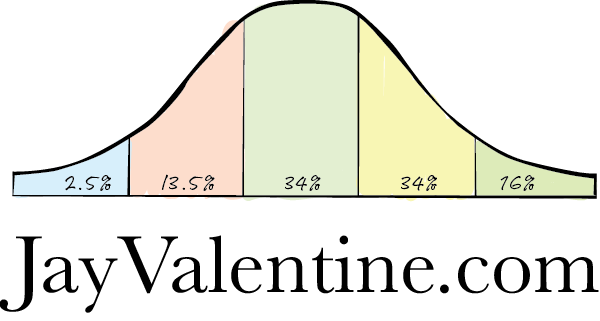
There comes a time when a company needs to move from direct to mostly indirect or channel sales. For VMware, that time is about now.
The VMware sales force is the single most costly line item on its operating statement. Moving this line item from VMware to the existing channel reduces all the expense losing little of the revenue.
The first question is whether the VMware sales force actually sells anything. Here, there is a lot of room for dispute. There is a strong case that VMware sales reps are the software equivalent of a Cheesecake Factory waitperson. They are not there to sell anything.
They exist to explain a complex menu to hungry customers who are going to buy one way or another.
VMware core salespeople sell to customers who own VMware’s basic products. Everyone, or almost everyone, uses the VMware virtualization. Why is there a need for more selling there? Give that to the VAR community and eliminate the costs.
VMware sales types are basically order takers. Such an order taker gets a 6-figure salary, an office, expense account and a commission for taking an order that would have been placed with or without their help.
Order takers do not add value; they consume capital.
Some VMware products do require a sales force. Unfortunately, they require something quite different from the mindless, wildly overpaid “core reps” who get a list of accounts that determines their success. Ass kissing is a valued skill in such an environment.
A VMware rep we know regularly made more than the world’s top brain surgeon. That lasted 3 or 4 years. Then his account list changed and he made a little more than a base salary.
Why?
Because at legacy software companies like VMware, Oracle, SAP and scores of others, the sales person is just there to take an order, meet with the customer regularly to do a forecast and have someone to call. If they have great accounts who buy stuff, they get cool plastic awards and go on trips. If their customer has a pause, they starve. Actually, they don’t miss a meal because they do have those 6-figure salaries.
The VMware core rep has zero ability to be a “trusted advisor” to a C level exec at a pretty big company.
VMware is essentially plumbing software used in the bowels of the IT department by people who work in cubicles and eat way too many carbs. If you visit a Fortune 500 company IT shop you will see the VMware logo-wear and coffee cups around many of those cubicles.
A VMware core rep is more likely to see a CIO in the annual report than in a face to face meeting. In some recent chats with VMware types, they laughed that the few times they actually got a CIO level call, they had to bring their manager, a tech manager, a tech, maybe a major account rep.
The result was that the CIO spent more time finding chairs than discussing his or her “strategic needs.”
Let’s not pick on VMware.
After all, they became part of Dell, a company that failed to see every new tech market for a generation. Dell missed the phone, the tablet, the cloud, the wearable and now, they are missing the edge, which is going to be more of a disruptor than an opportunity.
After Dell bought VMware as part of a larger legacy transaction, it looked to dump it to pay off leverage to creditors. Or maybe take it public – which they promptly did.
That worked out for Dell management pretty well. Unfortunately VMware ended up as a target for an acquisition where its fat could be transformed into operating income.
We are told the only CIO level product VMware ever tried was its Apptio equivalent, a piece of financial software that told the CIO her cost of compute for every app.
The core VMware sales reps were, we were told, so unable to handle a product that did not have a 90-day sales cycle that VMware sold the product to a private equity firm a couple of years after they bought it.
Today, in the hands of a quite competent C-level selling force, that IT-costing product is doing remarkably well.
The days of VMware virtualization driving growth are pretty much over. Now VMware has to compete in a far more complex environment of the micro service, containerized app that may not even need a virtual environment.
That means they are going to have to call on people who have many very different buying choices. This is new ground for VMware core reps where companies pretty much HAD to buy their virtualization.
This also requires a rep who can traverse an organization, work their way up the chain, bring a value add point of view. VMware core reps are almost universally unable to sell against a prevailing wind. They have never had to compete head-to-head with other reps who had products that appeared on the buyer’s menu.
The recently acquired Pivotal sales force will not help much as so many of them are just VMware retreads. Pivotal itself saw a 50% haircut in its stock price after it continually failed to make its numbers.
Dell figured that out pretty fast and started dumping the Pivotal sales force.
https://www.theregister.co.uk/2020/01/28/vmware_layoffs_confirmed/
Now VMware is in a very different place. Dell, which makes its dough with financial jiggering, not technology leadership, dumped them in a public offering to pay off debt.
Not long thereafter, Broadcom bought them up.
You remember Broadcom – they are the Computer Associates of the chip world – buying up long dead software companies and taking out obvious costs.
And for our pals at VMware, the fat removal will be massive.
How massive?
Well Broadcom said after the acquisition, they will increase the VMware margins 80%.
That 80% comes from removing the useless order takers paid as if they were Lone Wolves. The layer upon layer of field management, reporting to even more layers of corporate management – gone!
Now the VMware reps get to find out just how hard it is to get an order when you do not have 98% market penetration.
It’s really hard.
